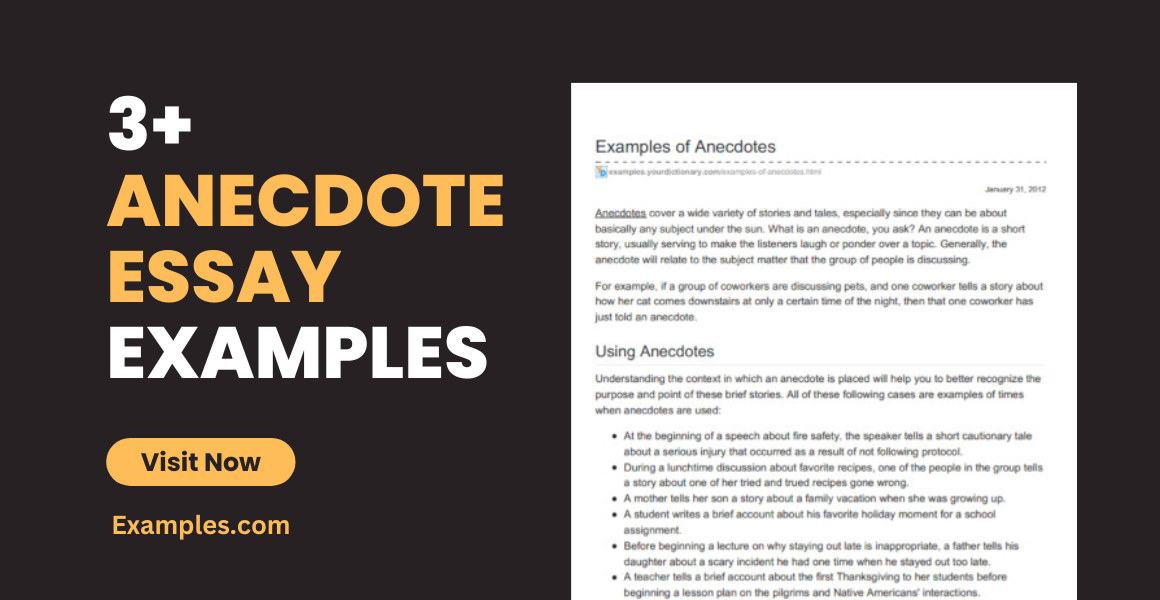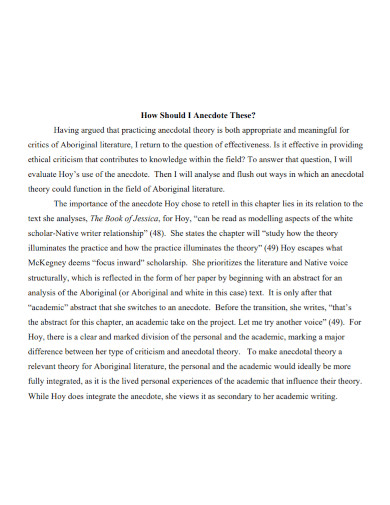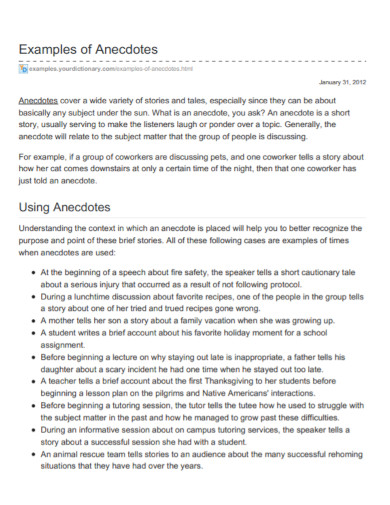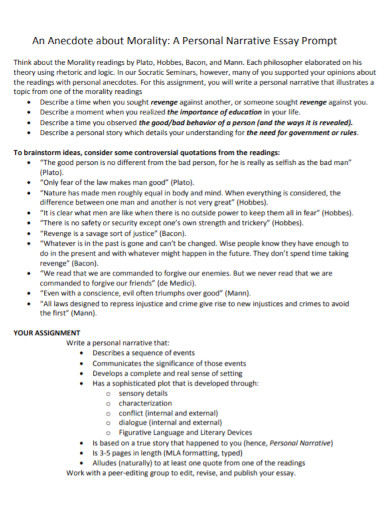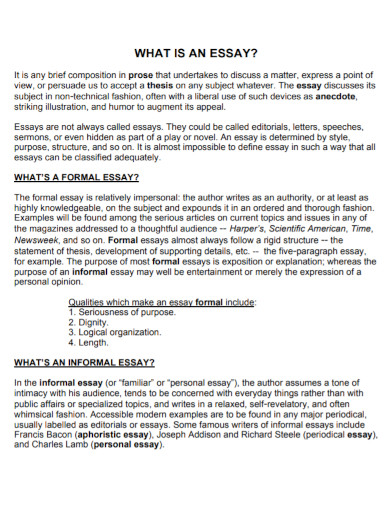Anecdote Essay Examples to Download
Anecdotal essays are common among colleges. It is useful when you want to have a bond between you and the readers. Through anecdotes, the audience will be able to engage themselves in your work. The question is “how are you going to create good anecdotal essays?”. Always remember that like any other essays, anecdotal essays also follow a specific format. In this article, you will be able to know details about the nature and structure of an anecdotal essay.
3+ Anecdote Essay Examples
1. Anecdote Literature Essay
2. Example of Anecdote Essay
3. Morality Anecdote Essay
4. Anecdote Essay Template
What is an Anecdote?
An anecdote is a short account of a specific person or a real occurrence. They make conversations that are considered to be personal. They are placed for the purpose of making the readers entertained.
An example of an anecdote would be: “When I was a kid, I used to have a dog who happens to be my best friend. I couldn’t imagine my life without him.”
How to Use Anecdotes in Essays?
- To have a very good message in your story, use your past experience as anecdotes.
- Venture out into the real world.
- Start a new story when you are being placed with another inspiration.
- If you have diaries, you may use it to connect together and make a good storyline.
- Let your stories speak for themselves.
Here are some examples of anecdotal essays that you may want to read:
“Kendall Hill describes how he was a “nerd” at school: he wishes it was easier to be “different”. He states, “if only it were easier to be different in this country. Back then our education system – and, by extension, most teachers and students – rejected anything unconventional”. Refer “Habitual cruelty: maybe the bullies get screwed up the most”, The Age, 19/6/11).
When the TV series of Alex Haley’s slave epic Roots was first broadcast in Australia a few decades ago, my high school tormenters had a brilliant idea. We could play Roots at school the next day.
“You can be Kunta Kinte!” my nemesis hooted, his eyes flashing evil mischief. “And the rest of you can go home and make willow whips.”
Electric excitement rippled through the group. Me? I thought I might cry.
The episode sums up the hell of high school for me – falling into a poisonous group that terrorised other students but, mostly, terrorised me. Soccer matches where I became the ball, kicked around until I was coated in mud like a choc-dipped loser. Threats hissed through clenched teeth to force two unwilling combatants, one of them always me, to brawl at lunchtime for the school’s entertainment. Every student on every bus chanting insults at me at home time.
And they say school days are the best of the your life.”
Linda Duberley recounts her despair at the fact that her son, Connor, was ruining his life owing to his gaming addition. (See “My son was a cyber addict – hooked on fantasy and sci-fi games” in The Age.) “For three years, Connor played truant, failed exams and shut himself away from people to create a new personality in his electronic universe.”
Duberley recounts: “To me, the problem seemed to be school; Connor was truanting. He was tired and stressed. So, I cut back my work as a media consultant to be around more at home. But he found new ways to sneak home from school, only now he had to be even more surreptitious to avoid me. Then, at a parents’ evenings, two of his teachers were clearly surprised to see me – they thought that he had left the school. That Christmas, his father took Connor’s younger brother and sister away so he and I could be alone together and talk. I was optimistic. But shortly after that, on just the second day of the new term, I found Connor hiding in the bathroom, having sneaked back into the house. In fact, he turned up at home several times that week, once having gone missing for so long that I called the police. That time, I eventually found him hidden, wrapped up in a duvet inside a cupboard.”
Writing anecdotes and real-life examples. (2014). English Works.
How do we formulate ideas when creating an anecdote essay?
You may start by using your own experiences to tell a story and then gather your ideas and start producing to make it a wholesome anecdote essay.
How long should an anecdotal essay be?
Anecdotal essays are like any other essays that contain two or more paragraphs.
When do we use anecdotes?
You may use anecdotes when you give personal perspectives or make people feel something like extreme happiness or sadness depending on the story.
The use of anecdotes makes your story more valuable. They can be used anywhere especially in telling a story about a specific person or an experience.


